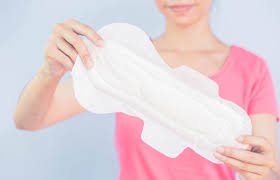How Often should Ladies change their menstrual pads and tampons daily?

Pads and tampons are the most popular menstrual care items for women. Do you know how many times women should change their pads and tampons?
It’s important to change them often because failure to do so leads to so many health risks.
How many times daily should women change their pads?
The American College of Obstetricians and Gynaecologists (ACOG) recommends changing your pad every four to eight hours.
Changing your pad before it fills up is essential, you don't have to wait for it to be full to change it.
What happens when women don’t change their pads often?
Period odour is a common problem because, if germs and sweat are allowed to linger for too long, they can produce foul smells.
This may be avoided by keeping your pad dry and clean, which may help with odours and lower the risk of infection.
Changing your pad regularly is crucial to preventing leakage, pain, and period odours.
How often should women change their tampons?
A tampon is inserted into the vagina using an applicator or finger. Make sure you relax when inserting it and wash your hands afterwards.
How often should women change their tampon?
Change your tampon every four to six hours or when you notice it’s full of blood.
Pull the string carefully until it comes out to remove the tampon. Put it in the dustbin after wrapping it in toilet paper; do not flush it down the toilet.
What happens when women don’t change tampons regularly?
Even when the tampon is hidden, don't forget to change it. Failure to do so may result in leaking or spotting on clothing or knickers. Use your fingers to reach in if you can't find the string.
Tampons should be changed frequently to avoid problems like infection, odour, or discharge.
Women who use tampons for prolonged periods run the risk of developing toxic shock syndrome (TSS), an uncommon but deadly illness.
It’s important to change these menstrual hygiene items frequently to avoid smells and infections.
3 wrong ways ladies dispose of sanitary pads
Many women unknowingly dispose of used sanitary pads in ways that can harm the environment, spread disease, and create unsanitary conditions.























